


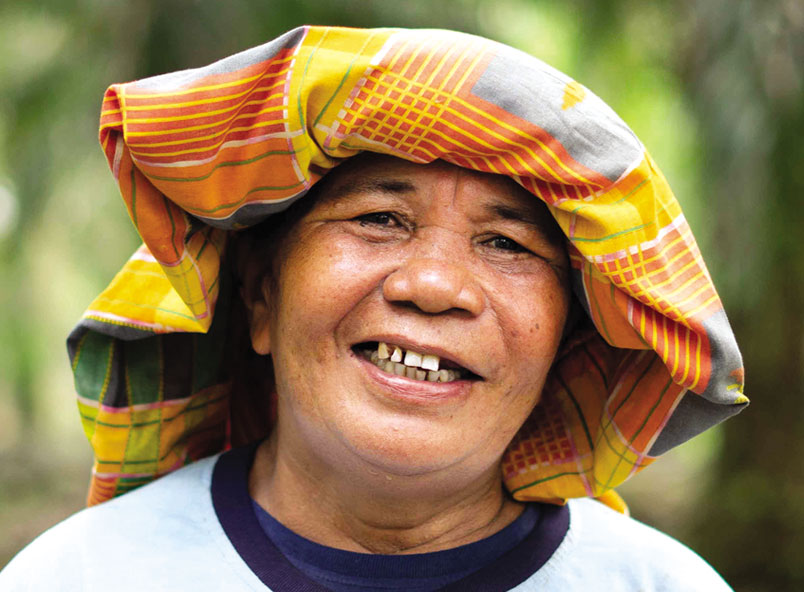
With the help of oil palm smallholders
December, 2021 in Issue 4 – 2021, Sustainability
Musim Mas has partnered with Nestlé and AAK to address deforestation in Aceh, Indonesia. Such multi-stakeholder collaborations are essential for achieving the transformational change necessary to foster a deforestation-free supply chain.
Creating meaningful change will require Musim Mas to navigate some of the challenges that come with a vast supply base. But doing so will unveil best practices that can be shared with peers – furthering industry-wide efforts to make sustainable palm oil the norm.
Efforts are being made to engage independent smallholders in this process. They join private sector actors, NGOs, suppliers, financial institutions and the local government in playing a key role in supporting a forest-positive future.
About 40% of Indonesia’s palm oil is produced by smallholders. As the biggest and fastest growing group of producers, they are expected to occupy more than 60% of the cultivated area by 2030. Therefore, achieving ambitious deforestation and sustainability goals would be impossible without engaging them.
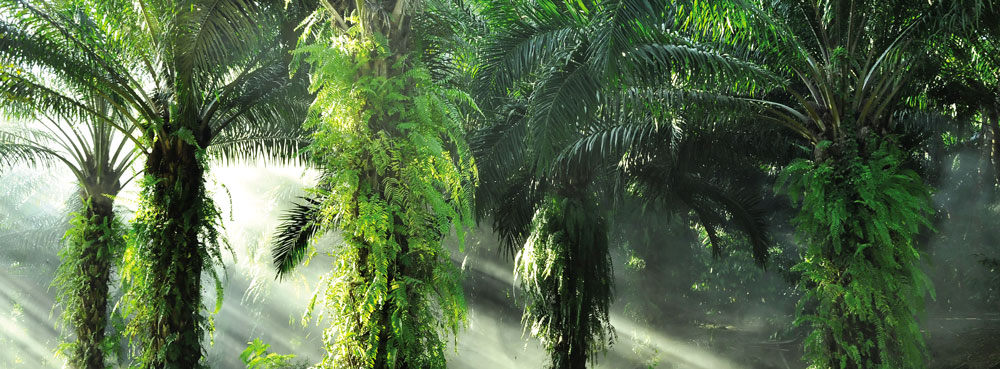
To further its own traceability efforts, Musim Mas has prioritised collaboration with smallholders, who provide 40% of its production volume. It is estimated that up to one million farmers currently participate in the company’s supply chain.
The Musim Mas Sustainability Policy – which lies at the heart of its endeavours – was updated in September 2020 to reflect a strict stance on the 2025 targets of NDPE – No Deforestation, No Peat and No Exploitation. The policy also lays out a renewed social commitment to improve the livelihood of smallholders and their communities.
Above all, palm oil production is a people business. Implementing the Supplier NDPE Roadmap has already facilitated engagement with more than 32,000 independent smallholders, with more to take place in the coming years. Prioritising multi-stakeholder collaboration in the Aceh-Leuser Ecosystem, Siak and Pelalawan regions, Musim Mas is supporting smallholders and their livelihood, while targeting a more sustainable palm oil future.
However, there are several obstacles to overcome. Most smallholders have inaccurate land titles or lack them altogether. Because they are not bound by contracts or they do not have a permanent relationship with continuous sales to mills, data collection on this group has proven to be a challenge.
Smallholders are farmers with less than 25 ha of planted oil palm. In Indonesia, they only manage 2 ha per household on average, often relying on family to fulfil labour demands. While scheme smallholders are bound by contracts and don’t have the autonomy to work with a mill operator or agent of their choice, they do have a high level of access to assistance from government agencies, businesses or cooperative societies.
This level of access to assistance schemes is uncommon for independent smallholders. They are also associated with smaller yields and less regulatory adherence to certification schemes like those of the RSPO and ISPO. Without government or organisational assistance, they face a lack of access to technical advice and market data. All these factors compromise productivity and sustainability efforts.
Perhaps most importantly, independent smallholders face difficulty in securing loans or capital. With such resources not readily available, smallholders are less likely to achieve – or even want to achieve – sustainability certification. Musim Mas has recognised that it is best to focus efforts on livelihood and people, so that sustainability improvements may follow.
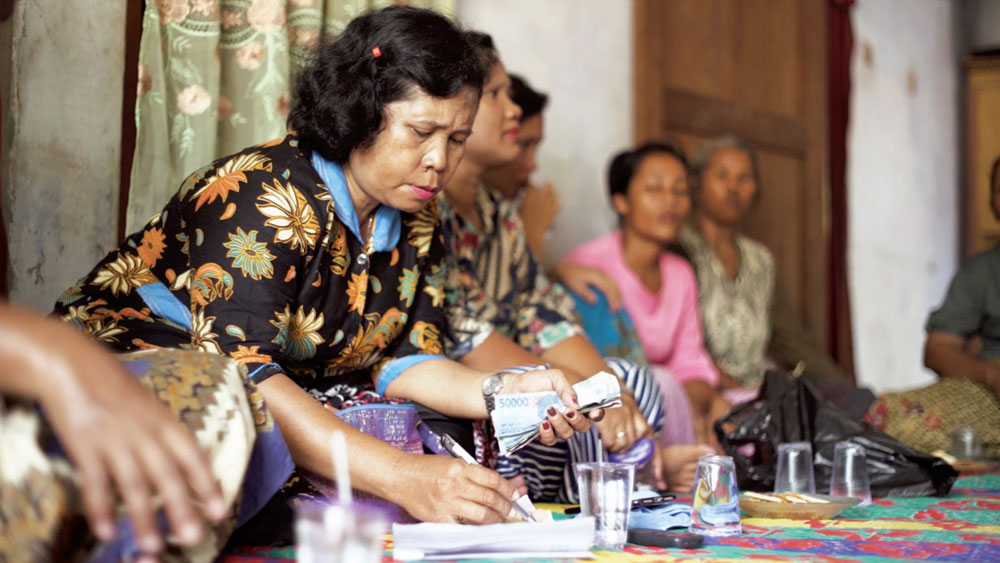
Solutions to problems
With productivity rates as much as 45% below company production levels and their distance from supply chain sustainability efforts, smallholders require much support when it comes to sustainable palm oil production.
When they face concurrent issues like poverty, gender inequality, limited education and a lack of resources, sustainability isn’t often a top priority for smallholders. As such, Musim Mas’ solutions are oriented around independent smallholder success, with the understanding that this forms a basis for improvements to come.
Partnership with IFC
This understanding was the catalyst for Musim Mas’ partnership with the International Finance Corporation (IFC), a member of the World Bank Group. Following a 2013 diagnostic study on smallholders, a pilot programme was launched in 2015.
The project initially engaged smallholders who supply the company’s mills, assisting them to overcome issues faced in their journey towards sustainable palm oil production. Centred on the pillars of environmental, business management and social support, the programme has provided smallholders with invaluable knowledge and has taught them new ways to secure financial assistance.
The success of the pilot programme led to a modified version being implemented in several mills and supplier mills in Riau, one of the top supplier provinces with 23% of total crude palm oil procurement. The company has since extended the programme to include independent smallholders in the neighbouring areas of Aceh and South Sumatra.
Priority landscapes
Musim Mas has further identified four priority landscapes, where projects have been implemented to support the intersections between biodiversity, food security, livelihood and forest well-being.
In Aceh, Riau, South Sumatra and West Kalimantan, support is being provided to smallholders who do not have the resources and capacity to make sustainability improvements. This includes those who have limited access to knowledge, are uncertain of land legality, and are unable to access government support.
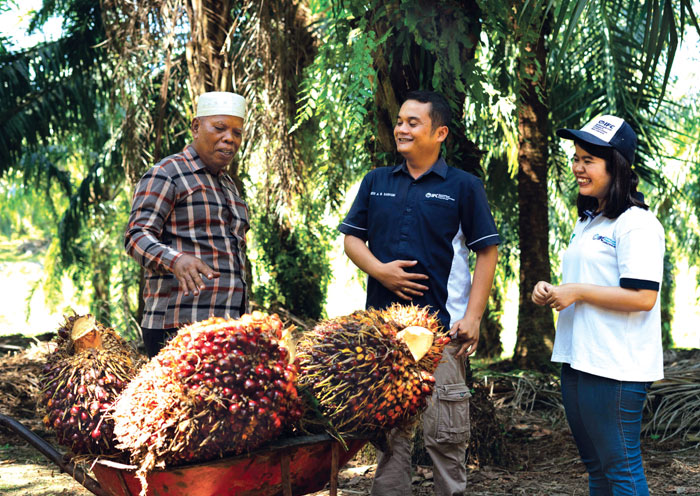
In South Sumatra, an Extension Services Programme has engaged 395 smallholders for training on Good Agricultural Practices (GAPs) since December 2017. Separately, in partnership with Rainforest Alliance, a project was completed in 2019 to address sustainability issues common to independent smallholders. This in turn paved the way for a jurisdictional approach and future sustainability efforts for the regency in North Sumatra. This programme, also conducted with Rainforest Alliance, has trained 525 smallholders.
While it only makes up 5% of Musim Mas’ supply base, West Kalimantan was selected for the establishment of a Smallholder Programme in November 2019. In addition, the company facilitated a partnership with Earthqualizer on an agroforestry training project in 2021. Helping to balance forest conservation with economic development, the project has educated suppliers, smallholders and local communities on land legalisation, forest management practices and sustainable land-use business models.
Smallholder Hubs
With the awareness that smallholders are indispensable when it comes to achieving sustainable production goals, Musim Mas has built upon the partnership with IFC to establish Smallholder Hubs since 2020. To date, these have been set up in Aceh Tamiang, Aceh Singkil and Dayun, Siak. The Smallholder Hub is a platform where palm oil companies can share their expertise and resources to train independent smallholders, regardless of who they sell to, within a specific district.
Designed to address some of the constraints faced by smallholders, these hubs work to advance GAPs, facilitate sustainable plantation management, and enable access to financial and market opportunities. To date, this programme – Indonesia’s largest and most ambitious initiative – has reached more than 35,000 independent smallholders.
Due to its unique history, biodiversity and the fact that Aceh contains 87% of the Aceh-Leuser Ecosystem, the province has been prioritised for Smallholder Hubs. Ongoing deforestation has signified a high-risk landscape, further demonstrating the need for intervention. With risk comes potential for opportunity, which is why one Smallholder Hub was launched in Aceh Tamiang and another in Aceh Singkil, in collaboration with General Mills.
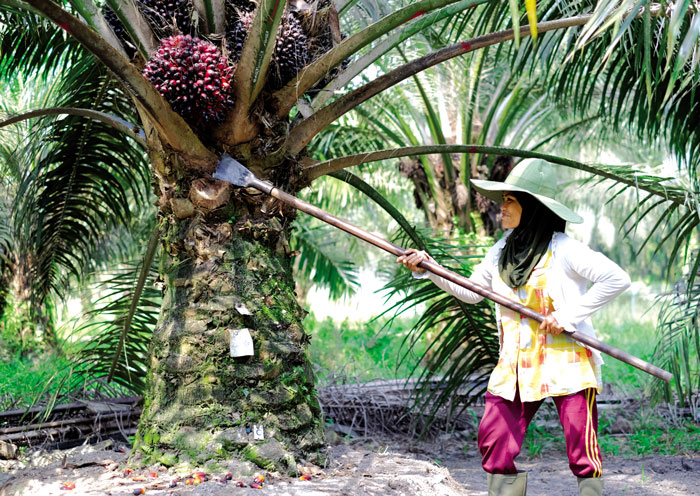
The Smallholder Hub in Aceh Tamiang has trained more than 73 village agriculture officers and 95 smallholders. Consistent with that of other Hubs, the curriculum covers GAPs (such as fertiliser management and integrated pest management); financial literacy; and NDPE. As part of the Inisiatif Dagang Hijau (Sustainable Trade Initiative) in Indonesia, the multi-stakeholder partnership has played a key role in the implementation of the Green Growth Plan across commodities in Aceh.
Similarly, in Aceh Singkil, the Smallholder Hub has produced 75 trained village officers and 310 smallholders. With the local government and General Mills as partners, the Hub has provided insight into the importance of land legality, and demonstrated how permits, land title certificates and Surat Tanda Daftar Budidaya (Cultivation Registration Letters) are essential for sustainable management of oil palm farms.
In spite of complications brought on by the Covid-19 pandemic, the Hub and support from the Earthworm Foundation have still been able to engage smallholders, hold multi-stakeholder workshops, and promote best practices to address deforestation as well as labour and social issues.
The third and most recent Smallholder Hub was a result of Musim Mas’ partnership with AAK and Nestlé. Funding during the first two years of the five-year project from these companies will enable about 1,000 independent oil palm smallholders to enrol in the programme and access training on sustainable agricultural practices. While helping smallholders increase their yield and earnings in existing areas of production, the programme will also reduce encroachment into protected areas.
Nestlé has committed to a deforestation-free palm oil supply chain by 2022; therefore, this partnership is essential in keeping planting within concession areas, minimising deforestation and protecting Aceh’s rainforests. Furthermore, it supplements governmental efforts to curb deforestation rates in the Leuser Ecosystem – the rate has already dropped sharply by this year, by more than 81% of the 2018/19 level.
Social and sustainability benefits
Indonesia is home to more than 2 million smallholders. The formation of cooperative societies has enabled them to benefit from support from other farmers, as well as to enhanced access to superior seeds and governmental replanting subsidies. This has pushed the best interests of the smallholders forward, while contributing to Musim Mas’ sustainability goals.
In the Aceh region alone, 100% of suppliers have an NDPE policy or have adopted the Musim Mas Sustainability Policy. Several of the UN Sustainable Development Goals are also supported in these efforts:
On the ground, these benefits are evidenced by stories like those of Heddie Munthe, a smallholder who accessed microfinancing to support her fertiliser purchases; or Lagut, a smallholder worried about seed purchases, who obtained governmental replanting subsidies.
Whether it is finding support to broker a deal with Unilever, implementing GAPs to increase yields and income, or encouraging female farmers to take on decision-making roles in a male-dominated industry, there is no shortage of successful case studies in the Musim Mas programmes.
If Musim Mas is to achieve NDPE compliance and a more sustainable palm oil supply base by 2025, it is crucial that no stakeholder group gets left behind. Efforts to engage smallholders are essential, as these bring together multiple players within a landscape – buyers, suppliers, brands, NGOs and civil society organisations. More importantly, synching industry efforts with local government initiatives ensures the best outcomes.
Ultimately, by supporting a diverse group of smallholders and their needs, Musim Mas will be one step closer to a fully traceable supply chain, while helping the industry to make sustainable palm oil production the norm.
Musim Mas
Headquartered in Singapore, Musim Mas is a privately owned, vertically integrated company involved in each point of the palm oil value chain.